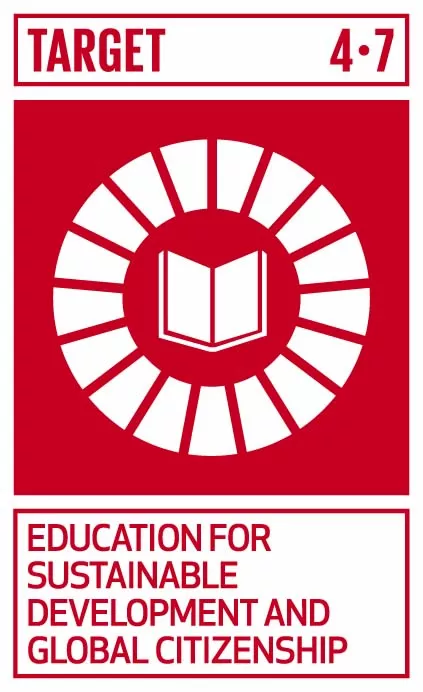SDG 4.7 and ESD vs GCED
Since we participated in an Erasmus / Lifelong Learning Programme project ESchool for Sustainability (2014-2016), we have taken the topic of sustainable development on board of our activities and are trying to reflect them. We have also dealt with the topic of global education and we realized how close both of these concepts are. In a very simple way – no matter if you are doing global education or education for sustainable development, you hopefully arrive at sustainable society and sustainable behavior...
Let’s just recall Sustainable Development Goal 4: Ensure inclusive and equitable quality education and promote lifelong learning opportunities for all and notably Target 4.7: “ensure that all learners are provided with the knowledge and skills to promote sustainable development, including, among others, through education for sustainable development and sustainable lifestyles, human rights, gender equality, promotion of a culture of peace and non-violence, global citizenship and appreciation of cultural diversity and of culture’s contribution to sustainable development”.
I looked at what UNESCO says about these two concepts: With a world population of 7 billion people and limited natural resources, we, as individuals and societies need to learn to live together sustainably. We need to take action responsibly based on the understanding that what we do today can have implications on the lives of people and the planet in future. Education for Sustainable Development (ESD) empowers people to change the way they think and work towards a sustainable future.
UNESCO aims to improve access to quality education on sustainable development at all levels and in all social contexts, to transform society by reorienting education and help people develop knowledge, skills, values and behaviours needed for sustainable development. It is about including sustainable development issues, such as climate change and biodiversity into teaching and learning. Individuals are encouraged to be responsible actors who resolve challenges, respect cultural diversity and contribute to creating a more sustainable world.
There is growing international recognition of ESD as an integral element of quality education and a key enabler for sustainable development. (https://en.unesco.org/themes/education-sustainable-development)
The global education has developed into Global Citizenship Education and it offers a related approach. While the world may be increasingly interconnected, human rights violations, inequality and poverty still threaten peace and sustainability.
Global Citizenship Education (GCED) is UNESCO’s response to these challenges. It works by empowering learners of all ages to understand that these are global, not local issues and to become active promoters of more peaceful, tolerant, inclusive, secure and sustainable societies.
It aims to instil in learners the values, attitudes and behaviours that support responsible global citizenship: creativity, innovation, and commitment to peace, human rights and sustainable development. (https://en.unesco.org/themes/gced)
Both of these concepts are trying to get into school curricula, and they will hopefully also get into adult education programmes for example within the „civic education“ category.





